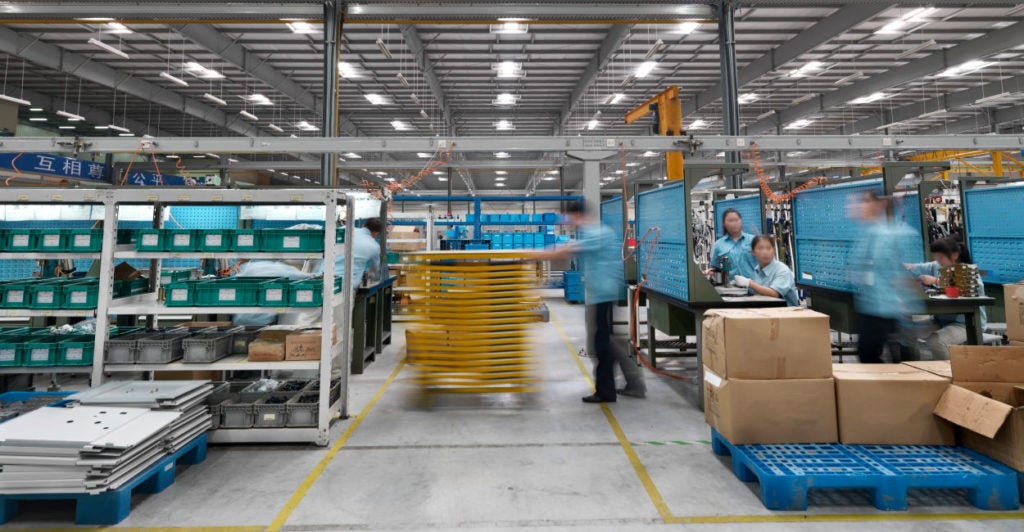An idea gaining bipartisan traction in Congress would help fix the damaging taxation of new investments set to kick in amid America’s eventual economic recovery from the COVID-19 pandemic.
Now is the time for lawmakers to make full expensing permanent and extend similar treatment to factories and retail space.
Full expensing lets businesses deduct spending on essential investments, such as equipment and tools, in the same way they currently can deduct their spending on employee wages, advertising costs, or rent.
>>> When can America reopen? The National Coronavirus Recovery Commission, a project of The Heritage Foundation, is gathering America’s top thinkers together to figure that out. Learn more here.
Expensing fixes a costly quirk in the U.S. tax code that makes investing in America more expensive and thus harder to create jobs, increase productivity, and raise wages.
Under current law, short-lived assets (those with useful lives of 20 years or less) are eligible for full expensing through 2022, and then it phases out over the following five years. At the same time, new spending on research and development will also lose the benefit of expensing.
As businesses lose the ability to deduct the full cost of their expenses immediately, they will choose to invest less as the after-tax cost of investing increases.
The threats of COVID-19 have shuttered large parts of our economy and delayed many business plans until next year—or longer.
Large purchasing orders for new equipment and tools often have long runways, taking months or even years to plan and execute. Following the uncertainty of the current crisis, the end of full expensing will come in the midst of our economic recovery. And uncertainty about the future of expensing could further delay necessary business investments.
Businesses need tax certainty to plan their recovery. The Accelerate Long-term Investment Growth Now (ALIGN) Act, sponsored by Sen. Pat Toomey, R-Pa., would do just that by making the current law on 100% expensing permanent.
Congress has included partial bonus expensing as an important economic-recovery allowance in the years after 2002, and during the Great Recession beginning in 2008. Recent research finds that bonus expensing following those downturns allowed businesses to increase employment and earnings.
Expensing is not just a business tax cut. It is at its core pro-worker.
By lowering the after-tax costs of new investments, businesses can upgrade or retrofit their facilities and equipment, or more easily move their operations back to the U.S. from abroad. As companies expand and innovate, they create more jobs, use better technology, and increase productivity, all of which boost wages.
In the post-coronavirus recovery, many American businesses will need to retool their operations for an economy that could look very different. Some firms will expand, others will need to reorganize, entrepreneurs will start new businesses that no one has thought of yet, and other businesses may want to bring critical capabilities back to the United States.
For whatever reason American businesses might need to make new purchases in the coming years, new investments should not be threatened by temporary tax policy that could arbitrarily raise business costs.
Making expensing permanent is a simple fix to ensure a more robust economic recovery.
Congress should also consider extending expensing beyond short-lived assets. Residential and nonresidential property, such as new apartment buildings or manufacturing floor space, should also be eligible for faster write-offs.
Currently, these big-ticket items have to wait 39 years to deduct the full cost of the investment. Thirty-nine years is a long time to wait and, because of that, structures face a significant tax disadvantage over other investments.
Making expensing permanent would extend the benefits of a proven recession-fighting policy and make it easier for American businesses to invest in the great American recovery.
